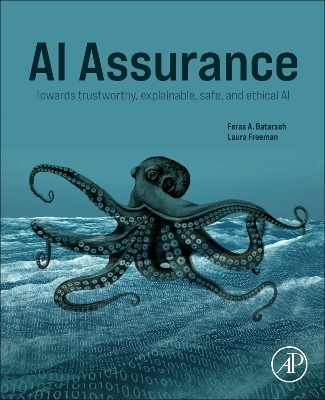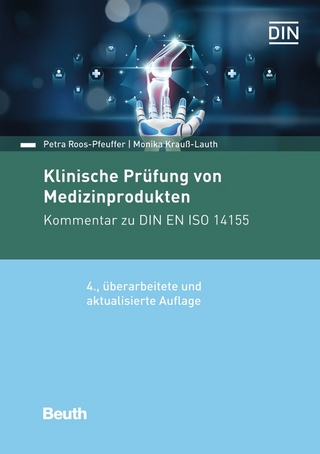
AI Assurance
Academic Press Inc (Verlag)
978-0-323-91919-7 (ISBN)
As AI assurance is now a major piece in AI and engineering research, this book will serve as a guide for researchers, scientists and students in their studies and experimentation. Moreover, as AI is being increasingly discussed and utilized at government and policymaking venues, the assurance of AI systems—as presented in this book—is at the nexus of such debates.
Feras A. Batarseh is an Associate Professor with the Department of Biological Systems Engineering at Virginia Tech (VT) and the Director of A3 (AI Assurance and Applications) Lab. His research spans the areas of AI Assurance, Cyberbiosecurity, AI for Agriculture and Water, and Data-Driven Public Policy. His work has been published at various prestigious journals and international conferences. Additionally, Dr. Batarseh published multiple chapters and books, his two recent books are: "Federal Data Science", and "Data Democracy", both by Elsevier’s Academic Press. Dr. Batarseh is a senior member of the Institute of Electrical and Electronics Engineers (IEEE), the Agricultural and Applied Economical Association (AAEA), and the Association for the Advancement of Artificial Intelligence (AAAI). He has taught AI and Data Science courses at multiple universities including George Mason University (GMU), University of Maryland - Baltimore County (UMBC), Georgetown University, and George Washington University (GWU). Dr. Batarseh obtained his Ph.D. and M.Sc. in Computer Engineering from the University of Central Florida (UCF) (2007, 2011), a Juris Masters of Law from GMU (2022), and a Graduate Certificate in Project Leadership from Cornell University (2016). He currently holds courtesy appointments with the Center for Advanced Innovation in Agriculture (CAIA), National Security Institute (NSI), and the Department of Electrical and Computer Engineering at VT. Dr. Laura Freeman is a Research Associate Professor at the Department of Statistics and the Director of the Intelligent Systems Lab at Virginia Tech’s Hume Center. Her research leverages experimental methods for conducting research that brings together cyber-physical systems, Data Science, Artificial Intelligence, and Machine Learning to address critical challenges in national security. She is a CCI fellow.
1. An introduction to AI assurance
2. Setting the goals for ethical, unbiased and fair AI
3. An overview of explainable and interpretable AI
4. Bias, Fairness, and assurance in AI: Overview and Synthesis
5. An evaluation of the potential global impacts of AI assurance
6. The role of inference in AI: start S.M.A.L.L. with mindful models
7. Outlier detection using AI: a survey
8. AI assurance using casual inference: application to public policy
9. Data collection, wrangling and preprocessing for AI assurance
10. Coordination-aware assurance for end-to-end machine learning systems: the R3E approach
11. Assuring AI methods for economic policymaking
12. Panopticon implications of ethical AI: equity, disparity, and inequality in healthcare
13. Recent advances in uncertainty quantification methods for engineering problems
14. Socially responsible AI assurance in precision agriculture for farmers and policymakers
15. The application of AI assurance in precision farming and agricultural economics
16. Bringing dark data to light with AI for evidence-based policy making
| Erscheinungsdatum | 21.10.2022 |
|---|---|
| Verlagsort | Oxford |
| Sprache | englisch |
| Maße | 191 x 235 mm |
| Gewicht | 1220 g |
| Themenwelt | Medizin / Pharmazie ► Physiotherapie / Ergotherapie ► Orthopädie |
| Technik ► Medizintechnik | |
| ISBN-10 | 0-323-91919-7 / 0323919197 |
| ISBN-13 | 978-0-323-91919-7 / 9780323919197 |
| Zustand | Neuware |
| Informationen gemäß Produktsicherheitsverordnung (GPSR) | |
| Haben Sie eine Frage zum Produkt? |
aus dem Bereich


